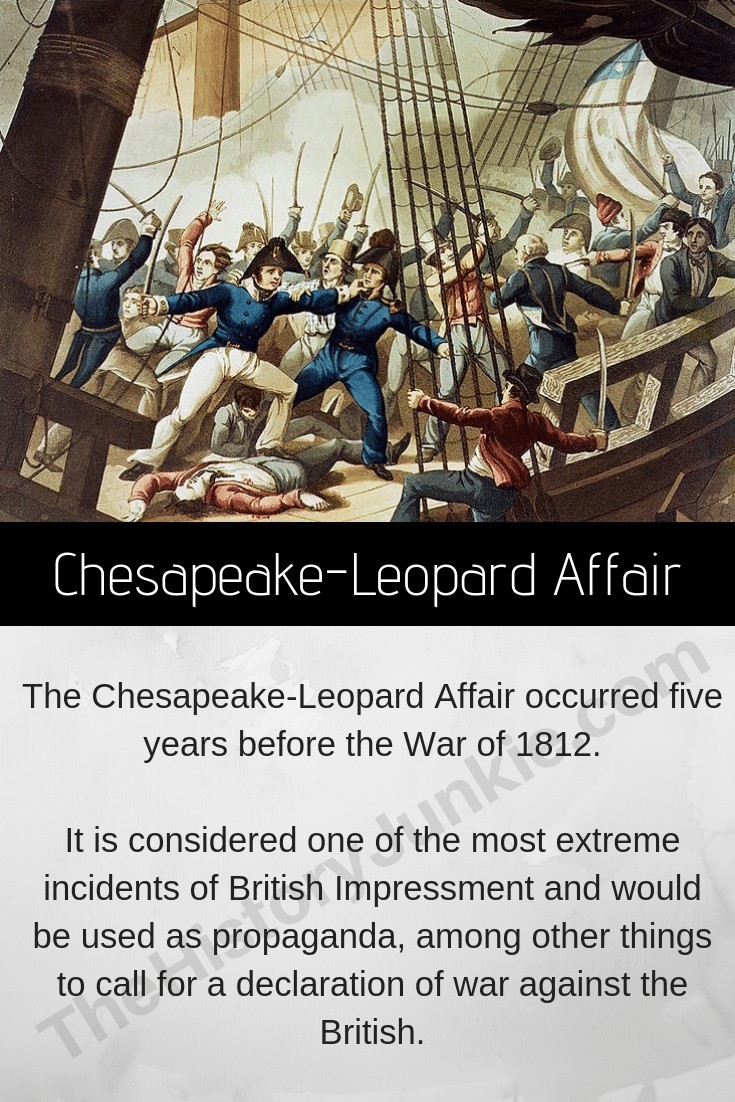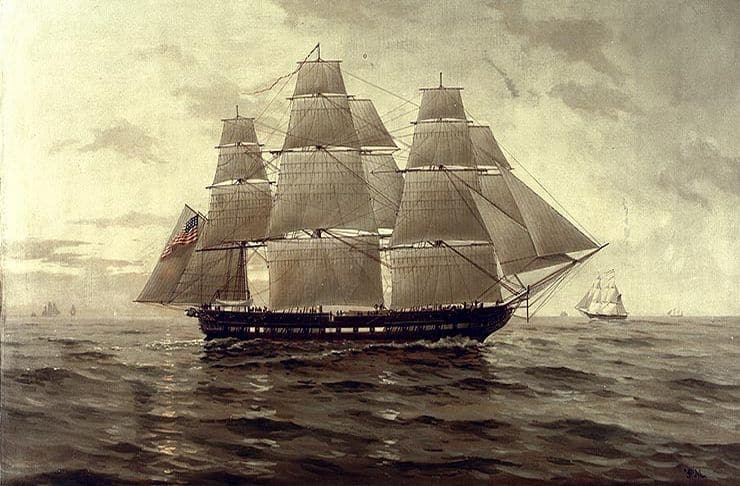One of the most extreme examples of British Impressment was the Chesapeake-Leopard Affair that took place on June 22, 1807, off the coast of Norfolk, Virginia.

The incident enraged the citizens of the United States, and for a short period of time, they were united politically. Both Federalists and Democratic-Republicans viewed what happened as appalling.
Prelude
In the spring of 1807, during the Napoleonic Wars, several British naval vessels were on duty on the North American Station, blockading two French third-rate warships in the Chesapeake Bay. A number of Royal Navy seamen had deserted from their ships, and local American authorities gave them sanctuary.
One of the deserters, a Londoner named Jenkin Ratford, joined the crew of the USS Chesapeake. Ratford had made himself conspicuous to British officers by shouting at them on the streets of Norfolk, Virginia.
Other deserters were reported to be at the Gosport Navy Yard, then commanded by Stephen Decatur. Decatur received a letter from the British consul ordering him to turn over three men alleged to have deserted from HMS Melampus.
The consul claimed the men had enlisted in the U.S. Navy, which was recruiting a crew for Chesapeake, then at the Washington Navy Yard outfitting for a voyage to the Mediterranean.
Vice-Admiral Sir George Berkeley dispatched his flagship, the fourth-rate warship HMS Leopard, with written orders authorizing him to board and search the United States warship to recover any deserters. Berkeley ordered Leopard's captain to search for deserters from HMS Belleisle, HMS Bellona, HMS Triumph, HMS Chichester, HMS Halifax, and the cutter HMS Zenobia.

Confrontation
The USS Chesapeake was located off the coast of Norfolk, Virginia, when the Leopard surprised them. American Commodore James Barron allowed one of the British officers aboard the Leopard to board the Chesapeake. The two had an inconclusive discussion about the deserters, and the British officer returned to his ship.
After his return, British Captain Humphreys ordered the American ship to submit. The Chesapeake refused the Humphreys ordered a round fired across her bow, which was followed by the Leopard firing broadsides into the American ship.
Commodore Barron was surprised and could only muster one shot from a single gun before striking his colors. After the smoke settled, there were 5 Americans dead and 18 wounded. Humphreys ignored the surrender and sent a boarding party to the Chesapeake. Once onboard, he began his search for deserters.
Humphreys located and seized the four Royal Navy deserters: Daniel Martin, John Strachan, and William Ware, all from HMS Melampus, and Jenkin Ratford, formerly on HMS Halifax. Only Ratford was born in England, while two of them were African Americans.
Jenkin Ratford was sentenced to death and was hanged on August 31, 1807. The others were given a sentence of 500 lashes that were later commuted.
American Response
President Thomas Jefferson said that he had never seen such outrage since the Battles of Lexington and Concord on the eve of the American Revolution.
James Monroe, then a foreign minister acting under instructions from U.S. Secretary of State James Madison, demanded British disavowal of the deed, the restoration of the four seamen, the recall of Admiral Berkeley, the exclusion of British warships from U.S. territorial waters, and the abolition of impressments from vessels under the United States flag.
The British did nothing. Impressments continued.
The event raised tensions between the two countries considerably, which resulted in President Jefferson trying to apply pressure on the British with the Embargo Act of 1807.
How quickly the Chesapeake was defeated also raised questions as to whether or not the current American Navy could defend the United States. A court-martial blamed Barron and suspended him from service for five years as punishment.
